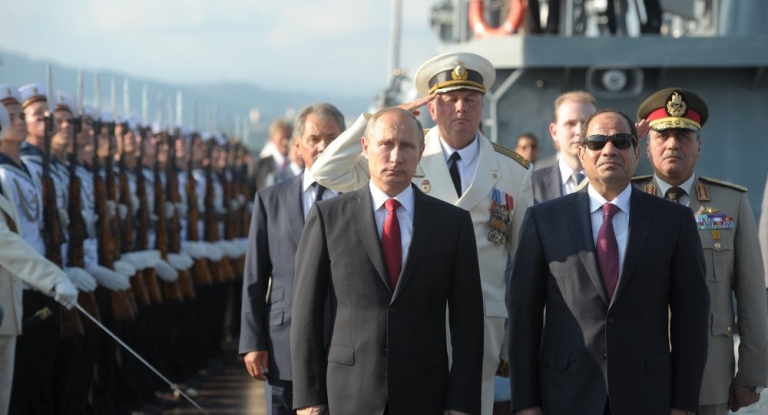Dr.Salim M.Al Zanoon
Russia and Egypt have reached to an initial agreement allowing the military aircraft of the two countries to exchange airspace and air bases, by giving advance notice before five days, and the agreement is expected to be five years and can be renewed.
The agreement comes within the framework of the convergence of positions between Moscow and Cairo, especially with regard to the Syrian and Libyan crisis. The agreement has implications for Egypt, Russia and the United States.
First: For Egypt.
The move is an extension of an Egyptian move that began in 2013 to strengthen ties with Russia in response to Obama’s decision to partially suspend US aid to Egypt after Rabaa sit-in.
This trend was reinforced after the Trump administration halted some $ 290 million in aid to Egypt under the US aid program.
Egypt seeks to establish direct relations with Russia and the Russian military as a possible alternative to the Egyptian army’s reliance on US weapons, aid, equipment and maintenance.
Second: For Russia
The agreement is a step in the strategy of Russian proliferation in the Middle East, which diminished with the collapse of the Soviet Union, and, the end of the Cold War, in return for the growing US military presence.
Moscow depends on the policy of penetrating US allies, through cooperation with the closest Arab allies of Washington.
Third: For the United States.
The agreement marks a decline in US international influence, both militarily and diplomatically around the world.
Diplomatically: Diplomatic power in the world has been reduced, with the departure of 100 senior diplomatic officials from US State Department since January.
The US administration has not appointed a Middle East envoy and has not yet appointed an assistant for East Asian affairs, nor has it appointed ambassadors to Saudi Arabia, Turkey, Jordan, Egypt, Qatar and South Korea.
Militarily: It is continuing in the policy of retreat and non-intervention in the military external crises and in this context retreated from the military support of the Syrian opposition, and the goal of overthrowing Assad.
This, in addition to other factors, is an indication of restructuring in the structure of the international system.
International Studies Unit
Rawbet Center for Research and Strategic Studies

